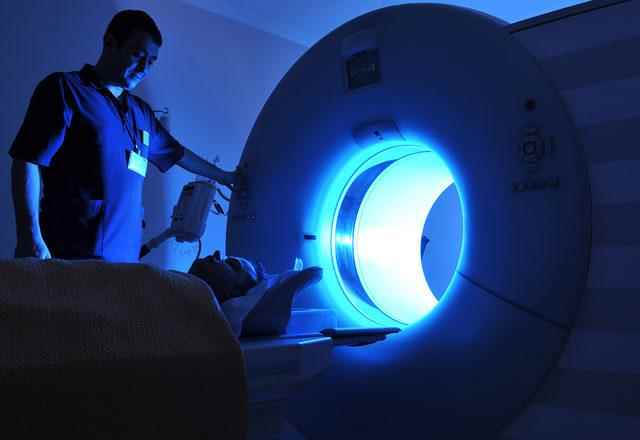There are many habits that are made frequently in daily life. These habits can negatively affect your life. Habits that can cause various diseases can even lead to infertility in men. Stating that male infertility is seen between 10 and 20 percent in Turkey, Op. Dr. Nuh Aldemir said, “The most common cause of infertility in men is varicocele. Infections, hereditary diseases, hormonal disorders, drug use, exposure to heavy metals and environmental toxins are factors that increase infertility. In addition, gluten-free diet, fast food, obesity, coffee consumption, taking a hot shower, working in a very hot environment can also cause infertility.
TENSION MEDICATIONS CAN ALSO CAUSE INfertility
Esenler Medipol University Hospital, Department of Urology, Op. Dr. Nuh Aldemir made important statements about infertility, known as male infertility. Kiss. Dr. Aldemir stated that the rate of infertility is between 10 and 15 percent in the world, and this rate varies between 10 and 20 percent in Turkey, adding, “The most common cause of infertility in men is varicocele. Varicocele is the enlargement of the veins in the testicles. Varicocele can cause a decrease in sperm count and motility by disrupting the blood flow of the testicles. In some infections in the urinary tract and reproductive tract, it can cause problems by affecting sperm production and health or by blocking the passage points of sperm. These infections can be sexually transmitted diseases such as chlamydia that can cause inflammation of the prostate, as well as infections that occur in the reproductive and excretory tracts. Some blood pressure medications known as alpha-blockers can also cause this.
HERITICAL PROBLEMS CAN CAUSE INfertility
Mentioning that there are many factors that cause infertility in men, Op. Dr. Aldemir continued his words as follows: “Anti-sperm antibodies are immune system cells that mistakenly identify sperm cells as aggressive viruses and try to destroy them. This is usually common in men who have had a vasectomy operation. Sperm duct defects can also lead to infertility. Some men are born with a blockage in the sperm-storing part of the testicles or in the tubes that carry sperm. During pregnancy, one or both testicles may not have descended from the abdomen to the sac that normally carries the testicles. Decreased productivity is much more common in men who experience such conditions. Chromosomal defects in men also carry a risk. Hereditary diseases such as Klinefelter syndrome can prevent the development of the male reproductive organ. ir. E.g; If a man is born with two X and one Y chromosomes instead of X and Y chromosomes, it can cause disorders in the male organ. Apart from this, cystic fibrosis, Kallmann syndrome, Young syndrome and Kartagener syndrome can also affect productivity.
RADIATION AND CHEMOTHERAPY CAN AFFECT MALE REPRODUCTION

Kiss. Dr. Aldemir said, “The hypothalamus, pituitary and testicles produce the hormones necessary to create sperm. In addition to these hormones, changes that may occur in the adrenal and thyroid glands and systems may also disrupt sperm production. Cancer and benign tumors can directly affect the male reproductive organs or the secretion of reproductive hormones. It can directly affect glands such as the pituitary gland.Surgical operations, radiation or chemotherapy for these tumors can also affect male fertility. Exposure to radiation can reduce sperm production. In such cases, it may take years for sperm production to return to normal. Receiving large doses of radiation can permanently affect sperm production. Prolonged exposure to any heavy metal and environmental toxin may reduce fertility.Prolonged exposure to benzenes, toluene, xylene, herbicides, pesticides, organic solvents, lead paint-containing materials may cause low sperm count.Testosterone recovery therapy, long-term mother Bolic steroid use, cancer drugs (chemotherapy), some antifungal drugs, some ulcer drugs and many similar drugs can impair sperm production and reduce male fertility. Using illegal drugs, alcohol, cigarettes and drugs, steroids used to build muscle can cause decreased sperm production in the testicles.
THESE HABITS INCREASES THE RISK OF INfertility

Mentioning that many factors in daily life, especially gluten-free diet, increase the risk of infertility, Op. Dr. Aldemir, “Celiac disease, which is a digestive disorder caused by sensitivity to gluten, can cause infertility in men. Fertility can be increased by applying a gluten-free diet. Obesity can also cause infertility by disrupting the body’s hormone balance. Consuming large amounts of coffee may cause deterioration in sperm production. Fast A food-style diet can also impair sperm production.Sitting in front of a computer or monitor for a long time, long-term desk jobs or stress from work can increase your risk of infertility.If exercise is done too much, it can cause infertility because it suppresses hormone production.Cycling for a long time can cause infertility. “Wearing tight pants all the time can cause infertility. Working in a very hot environment or taking a shower with hot water can increase the temperature of the testicles and impair sperm production. Frequent use of saunas or hot baths can temporarily reduce your sperm count.”
